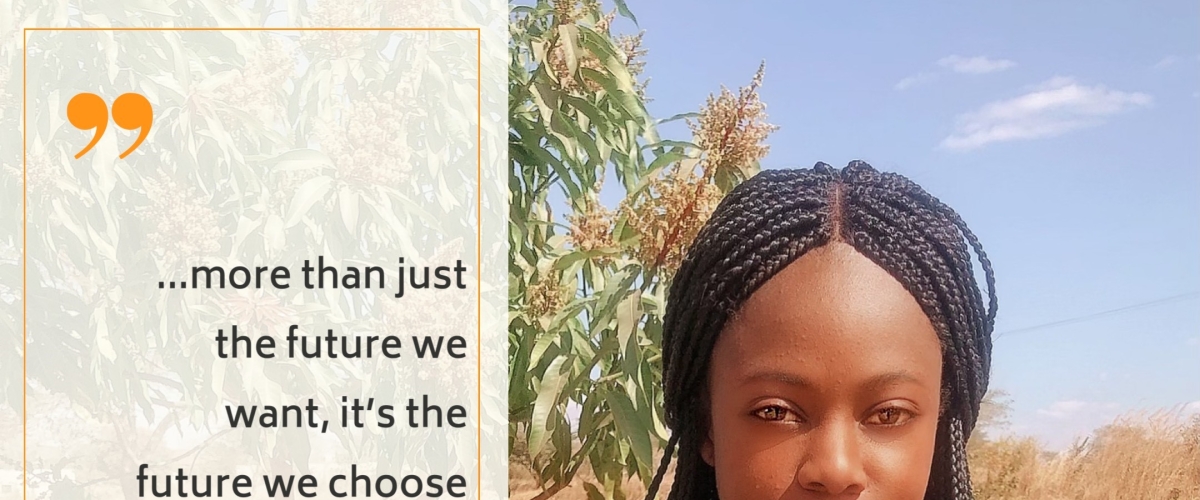
“These webinar series have gone far beyond my expectations. I knew that I would learn something but not as much as I have learned”.
“Let us have another series of training again before the end of the year because it has opened our eyes to things that we did not know existed”
“The facilitators were well versed in the field of foresight and we could not have asked for any other facilitators to handle the webinar”
These were among the many positive sentiments that were echoed by the participants of the six in a series of training webinars which were conducted by the SADC Futures project. The webinars attracted over 80 participants from the SADC region.
The series which started on June 17, 2020, was aimed at equipping participants with practical and concrete foresight tools and methodologies to plan for climate resilience in agriculture and natural resource management in the SADC Region and beyond. The facilitators used the online Zoom platform by engaging the participants in interactive exercises including breakaway sessions. One of the participants expressed that nothing ever felt as good as being part of the SADC future webinar virtual series because it almost felt like a physical meeting.
During the past 6 weeks, participants were introduced to foresight for agriculture and climate change planning and on how foresight can be applied in the SADC region. They were also exposed to understanding regional trends, multi-sectoral and systems linkages and climate risks in the region so that they are not caught unaware by some major disruption ahead. Another most exciting aspect they covered was the visioning, causal analysis and integrating climate resilience into future planning. These built up into scenario developments which participants could consider in future planning. From a given set of scenarios, the participants were encouraged to consider uncertainties and propose more robust and transformative climate-resilient policies and plan to address the forecasted situations.
And finally, the participants reviewed all the key foresight methods and tools and on the tailoring of practical action towards agriculture and climate change future planning and implementation in the SADC region. During the last session, the Future Project implemented by the CGIAR Research Program on Climate Change, Agriculture and Food Security (CCAFS) in Costa Rica was used a case study. The Project Scenario and Policy Researcher, Marieke Veeger shared the processes that her project followed to formulate the Central American CSA strategy. She cited the involvement of all stakeholders and strong political will from the Minister of Agriculture which contributed to the success of the programme. Point worthy noting was that political will in the implementation of the CSA programmes was critical. She, therefore, appealed to the participants to secure the buy-in of their government before engaging in any foresight activities because critical decision-makers are needed for the quick adoption of the resultant projects and programmes.
The last session provided a succinct summary of all the webinars and allowed the participants to go into breakout sessions on topics for which they needed further clarification. This also allowed for people who may have missed out on a session to catch up.
The six webinar series was officially closed by Mr Philip Thornton, the CCAFS Flagship Leader for Priorities and Policies for Climate Smart Agriculture who thanked the participates, facilitators and the partners including SADC Secretariat’s Food, Agriculture and Natural Resources (FANR) Directorate, the Centre for Coordination of Agricultural Research and Development for Southern Africa
(CCARDESA), the International Livestock Research Institute (ILRI) through the CGIAR Research Program on Climate Change, Agriculture and Food Security (CCAFS). He also expressed gratitude to the German Development Cooperation facilitated through the SADC / Deutsche Gesellschaft fur Internationale Zusammenarbeit (GIZ) GmbH ‘Adaptation to Climate Change in Rural Areas’ programme (ACCRA), funded by the German Federal Ministry for Economic Cooperation and Development (BMZ) for funding the training.
Ms Sabrina Chesterman the SADC Futures Programme Manager assured the participants that certificates of achievements will be sent within the course of the week. She urged people to use the eLearning programme and toolkit stemming from the training series which will be availed on the CCARDESA and CCAFS website. She also encouraged them to visit https://bit.ly/SADCfutures for resources and upcoming news on the training series.





